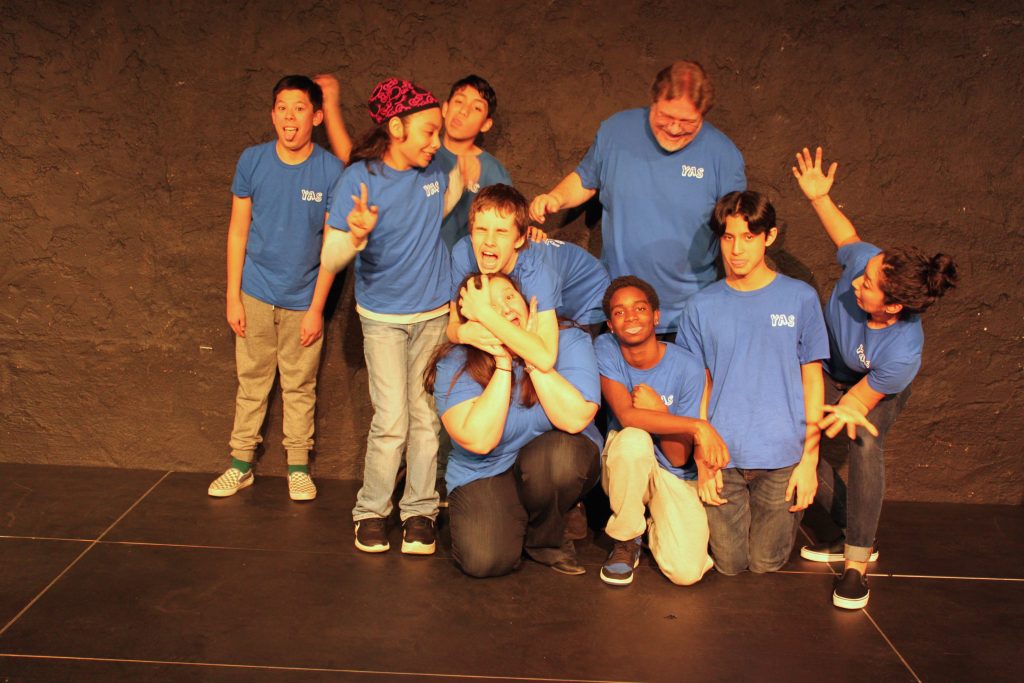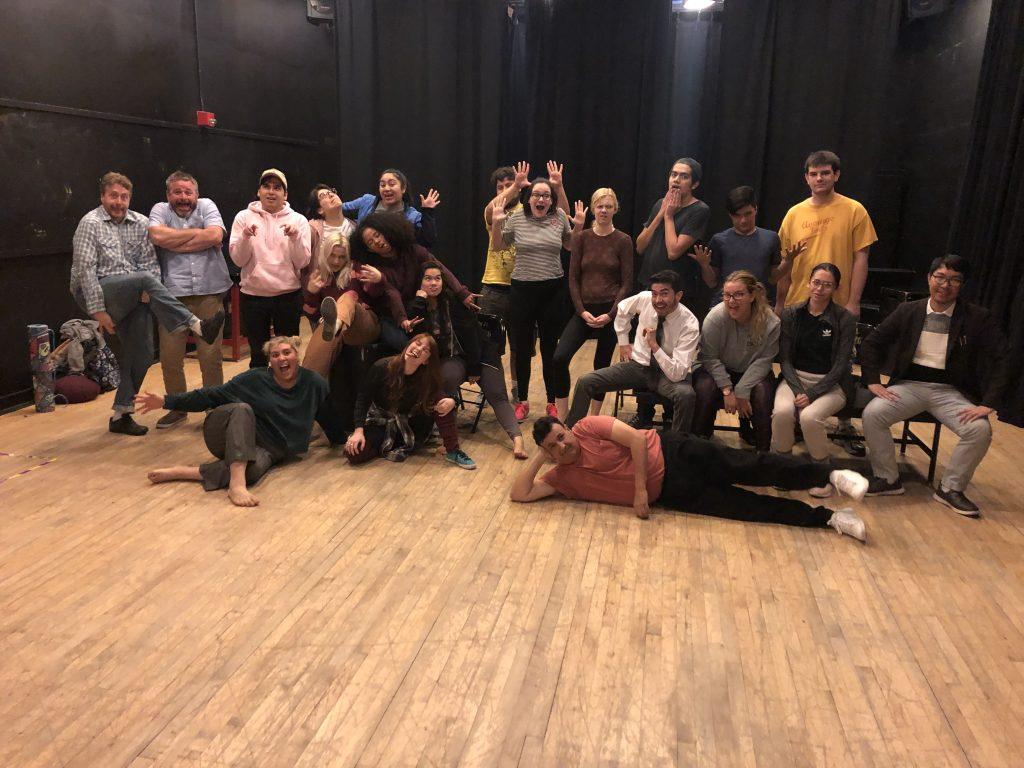
Imagine if parents made birth-style announcements marking their children’s transitions into young adulthood. One might read something like this: “We are excited to announce we are now the proud parents of a teen. Weighing in at 130 pounds, and 67 inches tall, our teen comes with a healthy dose of attitude, eye rolling and a desire to do things on their own.”
For parents, it can be tough to accept that a child is growing into an adult. This reality can prove even more complex in the case of teens and young adults with disabilities. Fortunately, L.A. is home to a variety of programs designed to help young people facing unique challenges spread their wings – even if they’ll always be Mom and Dad’s “baby.”
Dancing Toward Independence
One such program is the Exceptional Kids Parent Teacher Organization (EKPTO). Founded to help address a shortage of social and educational opportunities for youth with disabilities in the South Bay, the EKPTO’s goal is to enhance children’s self-image and self-worth by encouraging growth and independence. EKPTO supports its mission by hosting nine dances throughout the school year, an annual prom, family day and group marches in local parades.
“Our events are a safe place to meet up with friends or make new friends while having fun,” says Communications Secretary Sandra DeMond. “The EKPTO never ages out its attendees, so as long as someone enjoys music, dancing and lively entertainment, they are welcome to join us.” The organization has been working with young people for more than 20 years, and DeMond notes that its premise is simple but impactful. “Teens and adults, young and old, all enjoy hanging out with their peers. In that regard, everyone is the same,” she says. “Once you attend a dance and feel the happiness and joy in the room, you’ll want to come back again. The energy is infectious. These young people remind you what human beings should be.”
Developing Skills on Stage

Among its programs for young people with developmental and behavioral disorders, Professional Child Development Associates in Pasadena offers a Young Actors Squad for ages 13-17. “YAS,” as the teens refer to it, is an opportunity for teenagers with challenges in social communication to develop greater self-awareness, creativity and self-expression. “YAS is based in developing the same skills that any young person would need to be able to act and improvise in an onstage performance,” says therapist and group facilitator Kristen Williams. “The teens can feel their creativity bursting out, as their confidence builds and the bonds of friendship form.”
YAS teens are flexing other life-skills muscles as well. “Finding out directly what it’s like to depend on your scene partner, and how to provide your partner with the support they need, brings teamwork alive and makes it real,” says Williams. “Being able to think on your feet and adjust quickly when things don’t go exactly the way you’d expected are also skills that everyone needs to learn.”
Parents benefit as well, because YAS offers a structured yet flexible experience that allows them to gradually “let go,” knowing their young person is still in a supervised environment. And they get a proud-parent moment. In collaboration with the Pasadena Playhouse, YAS hosts a final performance at the playhouse’s Carrie Hamilton Theater. The young actors describe it as a feeling of great accomplishment and celebration.
Training for the Job Market

Studies show that young adults with autism have lower employment rates and higher rates of social isolation than people with other types of disabilities do. Speech-language pathologist Pamela Wiley, Ph.D., and her team at Los Angeles Speech & Language Therapy Center are working to address this issue with innovative employment-readiness programs.
The Culver City facility boasts a mock UPS store and an Outback Steakhouse complete with a dining room and fully functioning kitchen. Employment-readiness program participants go on to secure paid internships and employment with businesses and nonprofits around L.A. – including CVS, public libraries, an exotic bird store and, of course, UPS and Outback Steakhouse. “The training program offers exposure that helps trainees strike up relationships, friendships and garner the social and executive functioning needed to be successful in the workplace,” says Wiley, whose organization celebrates its 40th anniversary this year.
“Specifically, with my son RJ, I’ve noticed that he has become more attentive and has better eye contact than ever before,” says actress and philanthropist Holly Robinson Peete of RJ’s participation in the program. “His confidence level has elevated and his ability to be present and connected has vastly improved. These are the skills that he took with him to his job interview with the Los Angeles Dodgers, where he has been working as a clubhouse attendant for the last three years.”
The employers of program participants benefit as well. The team at Outback attests that employees from Dr. Wiley’s program arrive at work on time (or even early), and that the kindness they exude has influenced their co-workers, making the workplace culture more compassionate and sensitive.
Parents note this positive influence, too. “They now see their parenting journey supported by young adults taking on even more responsibility at home,” says Wiley. As for the teens, the employment-readiness program starts at 3 p.m., but they show up around noon. They want to be around each other. They want to be social and, most importantly, they are happy.
Learning to be Social
Nathan Roettger, program director at Education Spectrum, an Altadena-based organization serving individuals with autism spectrum disorders, says most teens face stress and struggles when engaging with peers. “For teens who are differently-abled, those struggles are more significant, and establishing relationships outside of the school setting can be very challenging,” he says. For this reason, Education Spectrum offers a young-adult social-skills training program designed to help participants deal with the increasing demands of approaching adulthood.
The group focuses on a variety of aptitudes, including conversational skills, friendships, dating, independent living and channeling special interests. “Teens and young adults on the spectrum are often left out of social activities or don’t know how to act in social situations,” says clinical psychologist Laurie Stephens, director of clinical services at Education Spectrum. “Social anxiety can also prevent them from going places they are unfamiliar with, and our program helps alleviate these challenges so they can effectively navigate a broader world.”
Young women, in particular, are an overlooked and underserved population within the autism community. So, Education Spectrum also has a program that focuses on what Stephens calls “the distinct social and community integration needs of young females with autism, including Internet usage, social media, texting, romantic partnerships and finding the right peer group.”
Roettger suggests that parents keep transitioning in mind throughout their child’s school years. “As they approach graduation, parents need to take greater steps in fostering more personal freedom for their growing adolescent,” he says. Opportunities for social-skills development can be an important part of that.
A Fun and Inclusive Zone

The Laugh Zone was born out of a brother’s desire to see his sister laugh again and a mother’s drive to create a social outlet for her maturing daughter with autism. Matthew Warden and his mother, Kristine Kobe, were at their kitchen table talking about his desire to give back through meaningful volunteerism. How great would it be if he could do that while supporting his sister, Taylor Warden?
Kobe’s recent night out at a comedy club with friends, Matthew’s quest to round out his college applications and the pair’s realization that Taylor – despite successfully finishing school and scoring a part-time job at The Elephant Bar in Torrance – didn’t laugh as much as she used to, came together in a perfect storm. The result was a comedy, improv and karaoke night for young adults with disabilities. Events take place monthly in the South Bay.
Laughter is contagious, and so was the desire to pitch in and help Kobe and Matthew get The Laugh Zone up and running. Other moms pitched in to help find a space, the Cal State Long Beach Improv team supplies on-stage talent, popular local spin-master DJ Dewey volunteers his time and The Elephant Bar donates food. Getting the word out about the program has also been a collaborative effort. “Everyone’s mission is to go tell as many people as you can,” Kobe says.
Taylor, the muse behind the mission, is loving the result. “It is a fun environment for adults with special needs to express themselves with no one judging them,” she says. “It feels great to be me there.” Kobe feels great, too, seeing that her daughter and many others leave The Laugh Zone with a smile. If you want to attend a Laugh Zone event or help spread the word, email Kobe at laughzone@yahoo.com.
As you welcome your not-so-little bundle of joy and sarcasm into the new world of adulthood, check out these programs and others for a little extra support during the transition.
Ryane Nicole Granados is an L.A. native, writer and mom of four sons. Her work has been featured in The Manifest-Station, Mutha Magazine, The Good Men Project, Expressing Motherhood, The Nervous Breakdown, Scary Mommy and L.A. Parent.


























